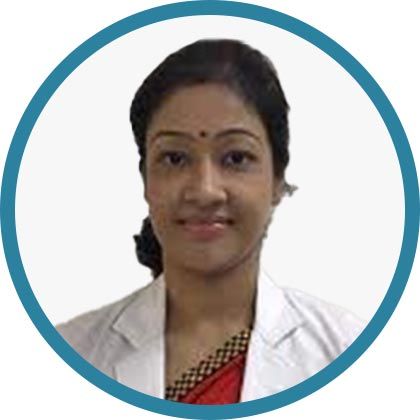Understanding the Process of Fertilisation
Explore the process of fertilisation, from the meeting of sperm and egg to embryo formation. Understand its stages, timing, and significance in reproduction.

Written by Dr. Vasanthasree Nair
Reviewed by Dr. Rohinipriyanka Pondugula MBBS
Last updated on 11th Aug, 2025

Fertilisation is a beautiful and complex process that marks the beginning of a new life. Whether you're trying to conceive, curious about how pregnancy happens, or simply interested in learning more about human biology, understanding fertilisation can be both fascinating and empowering.
This article will explain the process of fertilisation in simple terms, including how it happens, factors that influence it, and ways to support reproductive health.
What is Fertilisation?
Fertilisation is the union of a sperm (from the male) and an egg (from the female), resulting in the formation of a single cell called a zygote. This zygote contains genetic material from both parents and eventually develops into an embryo, leading to pregnancy.
Fertilisation typically occurs in the fallopian tubes, which connect the ovaries to the uterus. For fertilisation to happen successfully, several key steps must take place.
The Journey of the Egg and Sperm
1. Ovulation: The Release of the Egg
Every month, a woman’s ovaries release a mature egg during ovulation (usually around day 14 of a 28-day menstrual cycle).
The egg travels into the fallopian tube, where it can survive for about 12-24 hours.
2. Sperm’s Journey to the Egg
During intercourse, millions of sperm are released into the vagina.
The sperm swim through the cervix, into the uterus, and up into the fallopian tubes.
Only a few hundred sperm reach the egg, and only one will successfully fertilise it.
Sperm can survive inside the female reproductive tract for up to 5 days, waiting for the egg to be released.
Consult Top Doctors If You’re Trying For A Baby
3. Fertilisation: The Magic Moment
When a sperm reaches the egg, it must penetrate the egg’s outer layer (zona pellucida).
Once one sperm enters, the egg changes chemically to prevent other sperm from entering.
The genetic material from the sperm and egg combine, forming a zygote.
4. Implantation: The Start of Pregnancy
The zygote begins dividing rapidly as it moves toward the uterus.
After about 5-7 days, it becomes a blastocyst and attaches to the uterine lining (implantation).
Once implanted, pregnancy hormones (like hCG) are produced, signaling the start of pregnancy.
Factors That Affect Fertilisation
Several factors influence whether fertilisation happens successfully:
1. Timing of Intercourse
Since the egg only survives for about 24 hours, having intercourse 1-2 days before ovulation increases the chances of sperm being present when the egg is released.
2. Sperm Health
Sperm count, motility (movement), and morphology (shape) play a crucial role.
Lifestyle factors like smoking, excessive alcohol, poor diet, and stress can reduce sperm quality.
3. Egg Health
A woman’s egg quality declines with age, especially after 35.
Conditions like PCOS (Polycystic Ovary Syndrome) or endometriosis can affect ovulation.
4. Reproductive Health Conditions
Blocked fallopian tubes, hormonal imbalances, or uterine issues can prevent fertilisation.
Tips to Improve Fertility & Support Fertilisation
If you're trying to conceive, these tips may help improve your chances:
For Women:
Track ovulation using ovulation predictor kits or fertility apps.
Maintain a healthy weight: Being underweight or overweight can affect ovulation.
Eat a balanced diet: Include folate (leafy greens), iron, and antioxidants (berries, nuts).
Reduce stress: High stress can disrupt hormones. Try yoga, meditation, or gentle exercise.
Avoid smoking & excessive alcohol: These can harm egg quality.
For Men:
Keep testicles cool: Avoid hot baths, tight underwear, or prolonged laptop use on the lap.
Eat sperm-friendly foods: Zinc (pumpkin seeds), selenium (fish), and vitamin C (citrus fruits).
Exercise moderately: Too much intense exercise can lower sperm count.
Limit alcohol & smoking: These reduce sperm production and motility.
For Couples:
Have regular intercourse: Every 2-3 days during the fertile window (5 days before ovulation + ovulation day).
Stay patient: Even in healthy couples, conception can take 6-12 months.
When to Seek Help?
If you’ve been trying to conceive for over a year (or 6 months if you’re over 35) without success, consider consulting a fertility specialist.
Possible fertility tests include:
For women: Hormone tests, ultrasound, HSG (to check fallopian tubes).
For men: Semen analysis (checks sperm count and health).
At Apollo24|7, you can book consultations with fertility experts and get personalised guidance. Early intervention can help identify and address any issues.
Conclusion
Fertilisation is a delicate and miraculous process that requires the right timing, healthy reproductive systems, and sometimes a little patience. By understanding how it works and taking steps to support fertility, you can increase your chances of conception.
If you have concerns about fertility or need expert advice, don’t hesitate to reach out to a healthcare provider. Wishing you the best on your journey to parenthood! Book a consultation with a fertility specialist on Apollo24|7 today!
Consult Top Doctors
Consult Top Doctors If You’re Trying For A Baby

Dr Abdul Basith
Infertility Specialist
15 Years • MBBS & MD (OG) & MRCOG in UK & PD-FRM
Chennai
Apollo Women Hospitals Thousand Lights, Chennai
(25+ Patients)

Dr. Pavithra Ramakrishnan
Obstetrician and Gynaecologist
10 Years • MBBS, MS (OG), Diploma in Aesthetic (Cosmetic) Gynaecology
Chennai
Apollo Speciality Hospitals OMR, Chennai
(50+ Patients)

Dr Farhana J
Obstetrician and Gynaecologist
8 Years • MBBS,DGO,DNB(OG)
Tiruchirappalli
Apollo Speciality Hospitals Old Palpannai, Tiruchirappalli

Dr. Antharvedi Santhi
Obstetrician and Gynaecologist
15 Years • MBBS Ms(obstetrics and gynaecology)
Hyderguda
Apollo Hospitals Hyderguda, Hyderguda

Dr. Nilanjana Das
Obstetrician and Gynaecologist
5 Years • MS (O&G)
Guwahati
Apollo Personalized Health Check Centre, Guwahati
Consult Top Doctors

Dr Abdul Basith
Infertility Specialist
15 Years • MBBS & MD (OG) & MRCOG in UK & PD-FRM
Chennai
Apollo Women Hospitals Thousand Lights, Chennai
(25+ Patients)

Dr. Pavithra Ramakrishnan
Obstetrician and Gynaecologist
10 Years • MBBS, MS (OG), Diploma in Aesthetic (Cosmetic) Gynaecology
Chennai
Apollo Speciality Hospitals OMR, Chennai
(50+ Patients)

Dr Farhana J
Obstetrician and Gynaecologist
8 Years • MBBS,DGO,DNB(OG)
Tiruchirappalli
Apollo Speciality Hospitals Old Palpannai, Tiruchirappalli

Dr. Antharvedi Santhi
Obstetrician and Gynaecologist
15 Years • MBBS Ms(obstetrics and gynaecology)
Hyderguda
Apollo Hospitals Hyderguda, Hyderguda

Dr. Nilanjana Das
Obstetrician and Gynaecologist
5 Years • MS (O&G)
Guwahati
Apollo Personalized Health Check Centre, Guwahati
.webp)



